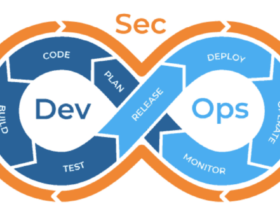The digital age has ushered in an unprecedented demand for cybersecurity professionals, making a career in this field not only crucial for global security but also highly lucrative. Understanding the factors that influence cybersecurity salary is key for aspiring and current professionals looking to navigate this dynamic landscape. From entry-level positions to executive leadership, compensation in cybersecurity is diverse, reflecting the specialized skills, experience, and critical importance of safeguarding digital assets. This comprehensive guide will break down the various elements that determine your earning potential in cybersecurity in 2025 and offer insights into the roles commanding the highest salaries.
Factors Influencing Your Cybersecurity Salary
Several key elements contribute to how much a cybersecurity professional earns. These factors are interconnected and can significantly impact your overall compensation package.
1. Experience Level
As with most professions, experience is a major driver of cybersecurity salary. Entry-level roles, typically for those with less than 1-2 years of experience, will naturally command lower salaries than mid-career or senior positions. With each passing year and the accumulation of practical expertise, your earning potential grows substantially.
- Entry-Level (0-2 years): Often includes roles like SOC Analyst (Tier 1), Junior Cybersecurity Analyst, or Security Administrator. Salaries typically range from $60,000 to $90,000 annually.
- Mid-Career (3-7 years): Professionals at this stage might hold titles such as Cybersecurity Engineer, Penetration Tester, or Incident Responder. Salaries can range from $90,000 to $130,000.
- Senior/Management (8+ years): This level includes roles like Security Architect, Cybersecurity Manager, or Chief Information Security Officer (CISO). Compensation can easily exceed $130,000, reaching upwards of $200,000 or more for top executives.

2. Specialization and Role
The vast field of cybersecurity encompasses numerous specializations, each with its own demand and corresponding cybersecurity salary range. Highly specialized roles that address acute and complex threats often command higher pay.
Some of the most prominent roles and their approximate average salaries (as of 2025 data, varying by source and region):
- Chief Information Security Officer (CISO): As an executive-level position responsible for an organization’s entire security strategy, CISOs consistently earn the highest salaries, often ranging from $160,000 to over $250,000, with some reaching $400,000+ at large enterprises.
- Security Architect: These professionals design and build secure systems and networks. Average salaries typically fall between $130,000 and $190,000.
- Cloud Security Engineer: With the migration to cloud platforms, specialists in AWS, Azure, or GCP security are in high demand, earning an average of $120,000 to $160,000.
- Lead Penetration Tester / Ethical Hacker: These experts actively test an organization’s defenses for vulnerabilities. Their salaries can range from $115,000 to $160,000.
- Cybersecurity Engineer: Responsible for implementing and maintaining security solutions, average salaries are often between $100,000 and $150,000.
- Information Security Analyst: A foundational role, monitoring systems and responding to incidents, typically earns $80,000 to $125,000.
- GRC (Governance, Risk, and Compliance) Analyst: Focuses on regulatory adherence and risk management, with salaries often ranging from $70,000 to $115,000.

3. Education and Certifications
While hands-on experience is paramount, formal education and industry certifications significantly boost cybersecurity salary potential. A bachelor’s or master’s degree in a related field (e.g., Computer Science, Cybersecurity) provides a strong foundation. However, industry-recognized certifications are often seen as direct indicators of specialized skills and can lead to immediate salary increases.
Top certifications known to impact salary include :
- Certified Information Systems Security Professional (CISSP) : Widely recognized as a gold standard for experienced professionals, often leading to average salaries well over $120,000.
- Certified Information Security Manager (CISM) : Targets those in management roles, with average salaries often exceeding $150,000.
- Certified Ethical Hacker (CEH) : Demonstrates expertise in penetration testing, often correlated with higher earnings for security testers.
- CompTIA Security+ : An excellent entry-level certification that provides a broad understanding of cybersecurity fundamentals, helping to establish a baseline salary.
- Cloud-specific certifications (e.g., AWS Certified Security – Specialty, Azure Security Engineer Associate): Highly valued for cloud security roles.
According to the EC-Council’s Cybersecurity Salary Report, professionals with certifications often command significantly higher salaries. For a detailed breakdown, you can check their insights on Cybersecurity Salary by Certifications.
4. Geographic Location
Cybersecurity salary varies considerably by region and city. Major tech hubs and metropolitan areas with a high concentration of tech companies and government contractors typically offer higher salaries to account for the increased cost of living and the intense demand for talent. Cities like San Francisco, New York, Washington D.C., and Seattle generally offer the highest compensation. Conversely, salaries in areas with a lower cost of living or fewer cybersecurity opportunities may be comparatively lower.
5. Industry Sector
The industry an organization operates in can also influence cybersecurity salary. Sectors that handle highly sensitive data or are subject to strict regulations, such as:
- Finance: Banks, investment firms, and fintech companies often offer premium salaries due to the immense financial risks associated with breaches.
- Healthcare: Protecting patient data (PHI) under regulations like HIPAA drives high demand and competitive pay.
- Government/Defense: Critical infrastructure and national security concerns lead to robust cybersecurity investments and attractive salaries.
- Technology: Tech giants and innovative startups often offer competitive compensation and benefits packages to attract top talent.
Entry-Level Cybersecurity Salary: A Promising Start
For those just beginning their cybersecurity journey, the entry-level cybersecurity salary is highly competitive compared to many other fields. While specific figures vary, many entry-level roles, such as Security Operations Center (SOC) Analyst or Junior Information Security Analyst, start in the $60,000 to $80,000 range. With the severe global skills gap, employers are often willing to invest in training and developing promising new talent.
Organizations like (ISC)² provide valuable research on the cybersecurity workforce, highlighting the ongoing demand. Their annual Cybersecurity Workforce Study offers insights into trends, shortages, and salary benchmarks.
Boosting Your Cybersecurity Salary: Strategies for Growth
To maximize your cybersecurity salary potential, consider these strategies:
- Specialize: As mentioned, niche skills are highly rewarded. Deep dive into areas like cloud security, industrial control system (ICS) security, or red teaming.
- Earn Certifications: Continuously pursue relevant and advanced certifications that align with your career goals and demonstrate your expertise.
- Gain Hands-on Experience: Practical experience with security tools, incident response, and vulnerability management is invaluable. Participate in capture-the-flag (CTF) events, labs, and personal projects.
- Network: Connect with other professionals in the field. Industry conferences, local meetups, and online communities can open doors to new opportunities and insights.
- Develop Soft Skills: Strong communication, problem-solving, and critical thinking skills are essential for career progression and often lead to higher-paying leadership roles.
- Consider a Master’s Degree: For some advanced or research-heavy roles, a master’s degree can further differentiate you and justify a higher salary.
The Future Outlook for Cybersecurity Salary
The outlook for cybersecurity salary remains incredibly positive. With the increasing sophistication of cyber threats and the growing reliance on digital infrastructure across all sectors, the demand for skilled cybersecurity professionals is projected to continue its upward trajectory. The persistent skills gap means that qualified individuals will continue to be highly sought after and well-compensated. As industries embrace emerging technologies like AI, IoT, and quantum computing, new security challenges will arise, creating even more specialized and high-paying roles.
Conclusion
A career in cybersecurity offers not only vital contributions to a secure digital world but also significant financial rewards. Your cybersecurity salary will be a reflection of your experience, the specialized skills you acquire, the certifications you hold, and where you choose to work. By strategically planning your career path, investing in continuous learning, and adapting to emerging threats, you can carve out a highly lucrative and impactful future in this indispensable field.
Are you ready to explore the exciting possibilities and lucrative careers within cybersecurity? Dive deeper into educational pathways and industry insights on JurnalIn’s technology and career development resources at Jurnalin.









